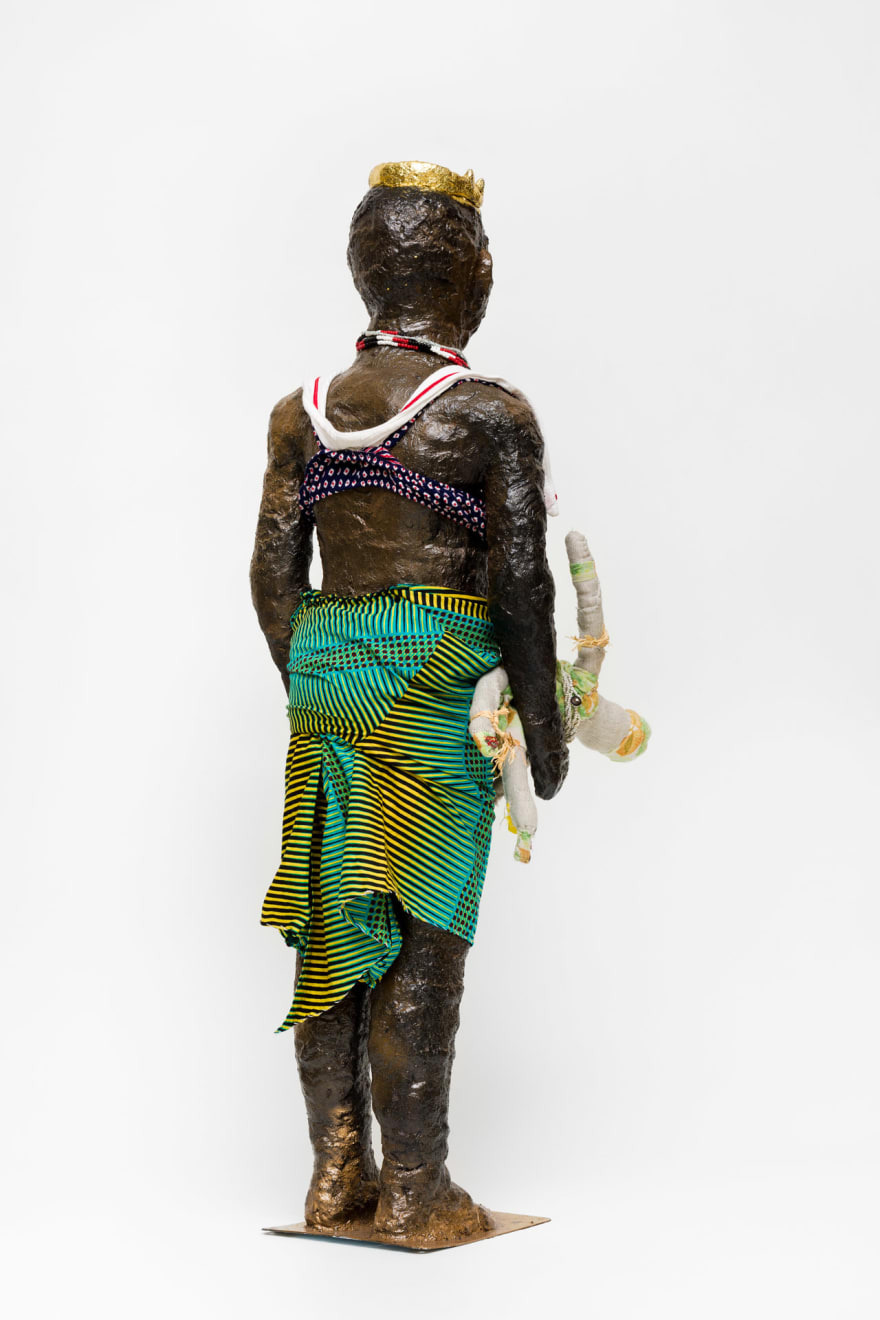Novíssimo Edgar
Rainha Pequena, 2023
tecido, cimento, miçangas, folha de ouro, tinta acrílica
[fabric, cement, beads, gold leaf, acrylic paint]
[fabric, cement, beads, gold leaf, acrylic paint]
114 x 41 x 28 cm
[44 7/8 x 16 1/8 x 11 in]
[44 7/8 x 16 1/8 x 11 in]
Further images
A falta da presença de rainhas negras na história é um reflexo da marginalização e do racismo sofrido pela comunidade negra. Por muito tempo, a narrativa histórica foi controlada por...
A falta da presença de rainhas negras na história é um reflexo da marginalização e do racismo sofrido pela comunidade negra. Por muito tempo, a narrativa histórica foi controlada por grupos dominantes que não reconheciam a importância e a contribuição das mulheres e pessoas negras para a sociedade. Apesar dessa exclusão, há registros de grandes rainhas negras que governaram com sabedoria em diferentes partes do mundo. Nzinga Mbande de Angola, Yaa Asantewaa de Gana e Amina de Zazzau na Nigéria lideraram seus reinos com coragem e estratégia, mas suas histórias são frequentemente esquecidas ou apagadas. É importante reconhecer esta lacuna de representatividade e trabalhar para corrigí-la. A inclusão dos legados destas rainhas na trajetória mundial é crucial para uma compreensão completa e precisa da história, além de ser uma fonte de inspiração para jovens mulheres negras que anseiam por posições de liderança e atuam como agentes de mudança nas suas comunidades.
The lack of presence of black queens in history is a reflection of the marginalization and racism suffered by the black community. For a long time, the historical narrative was controlled by dominant groups that did not recognize the importance and contribution of women and black people to society. Despite this exclusion, there are records of great black queens who ruled wisely in different parts of the world. Nzinga Mbande of Angola, Yaa Asantewaa of Ghana and Amina de Zazzau of Nigeria led their kingdoms with courage and strategy, but their stories are often forgotten or erased. It is important to recognize this representation gap and work to fill it. The inclusion of these queens' legacies in the world trajectory is crucial for a complete and accurate understanding of history, as well as being a source of inspiration for young black women who yearn for leadership positions and act as agents of change in their communities.
The lack of presence of black queens in history is a reflection of the marginalization and racism suffered by the black community. For a long time, the historical narrative was controlled by dominant groups that did not recognize the importance and contribution of women and black people to society. Despite this exclusion, there are records of great black queens who ruled wisely in different parts of the world. Nzinga Mbande of Angola, Yaa Asantewaa of Ghana and Amina de Zazzau of Nigeria led their kingdoms with courage and strategy, but their stories are often forgotten or erased. It is important to recognize this representation gap and work to fill it. The inclusion of these queens' legacies in the world trajectory is crucial for a complete and accurate understanding of history, as well as being a source of inspiration for young black women who yearn for leadership positions and act as agents of change in their communities.











